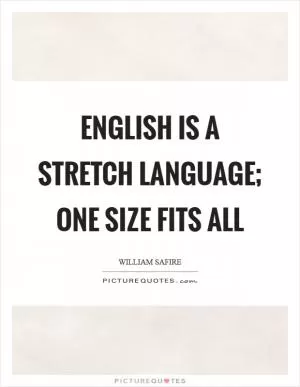Only in grammar can you be more than perfect

Only in grammar can you be more than perfect
William Safire, a renowned American author, columnist, and speechwriter, once famously said, "Only in grammar can you be more than perfect." This statement encapsulates the idea that in the realm of language and communication, perfection is not only attainable but can be surpassed through the mastery of grammar.Safire, known for his wit and expertise in language, understood the power of grammar in shaping our thoughts and expressions. He believed that by adhering to the rules and principles of grammar, one could elevate their writing and communication to a level beyond mere perfection. In essence, grammar serves as a tool for precision, clarity, and effectiveness in conveying ideas and emotions.
The concept of being "more than perfect" in grammar can be understood in various ways. One interpretation is that by mastering grammar, one can achieve a level of excellence that goes beyond mere correctness. This involves not only following the rules of grammar but also understanding the nuances of language, such as tone, style, and rhetorical devices. By harnessing these elements, a writer or speaker can create a more impactful and engaging message that resonates with the audience.
Furthermore, Safire's statement highlights the idea that grammar is not just a set of rigid rules to be followed but a dynamic and creative tool for self-expression. By manipulating grammar effectively, one can play with language, create new meanings, and evoke powerful emotions in the reader or listener. In this sense, grammar becomes a vehicle for innovation and artistry in communication.
Moreover, Safire's assertion underscores the importance of continuous learning and improvement in grammar. Just as one can always strive to be a better writer or speaker, there is always room for growth and refinement in one's understanding of grammar. By honing their grammar skills, individuals can constantly push the boundaries of perfection and strive for excellence in their communication.












 Friendship Quotes
Friendship Quotes Love Quotes
Love Quotes Life Quotes
Life Quotes Funny Quotes
Funny Quotes Motivational Quotes
Motivational Quotes Inspirational Quotes
Inspirational Quotes